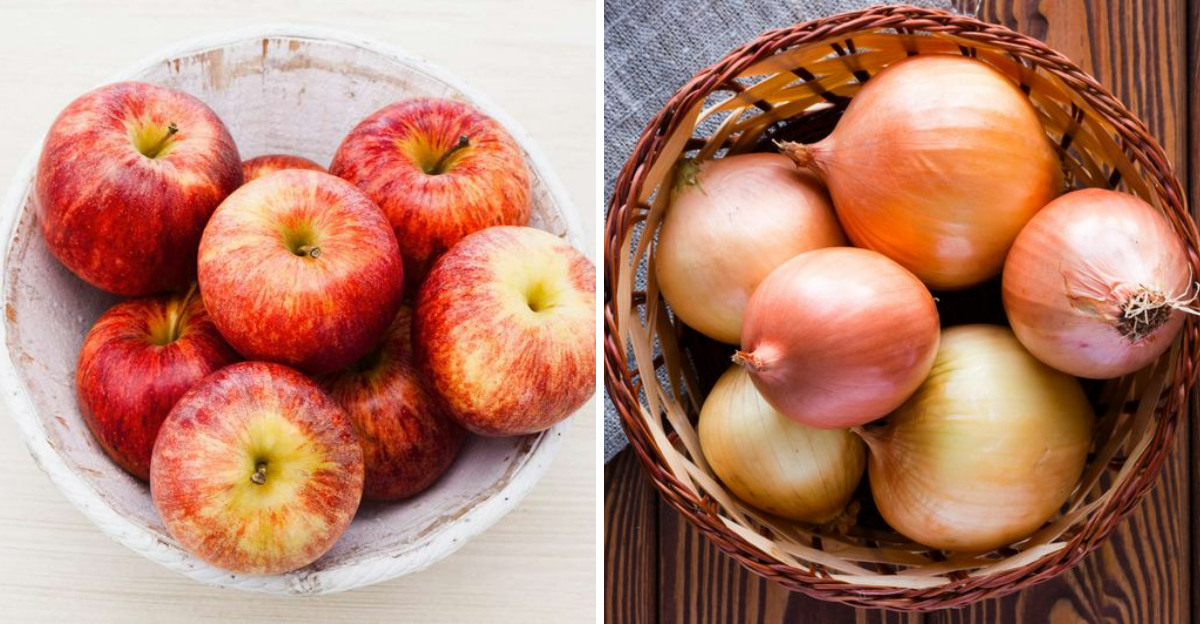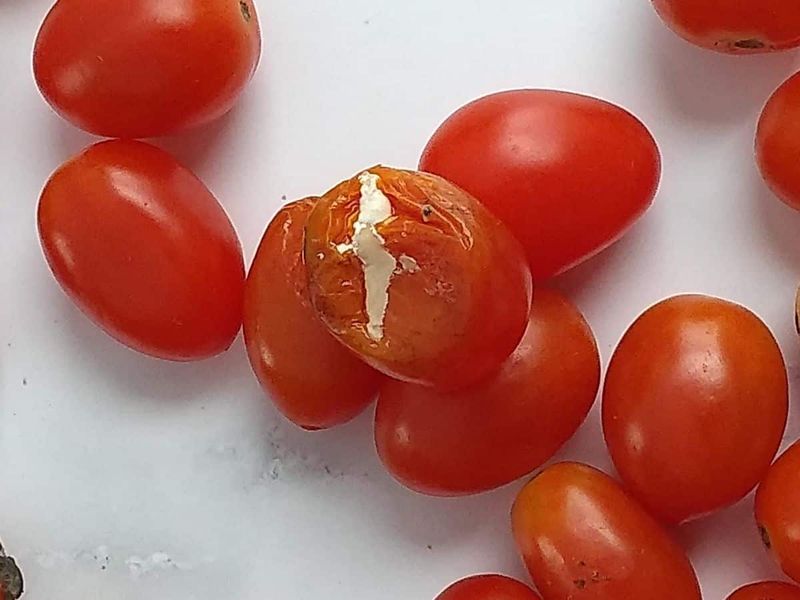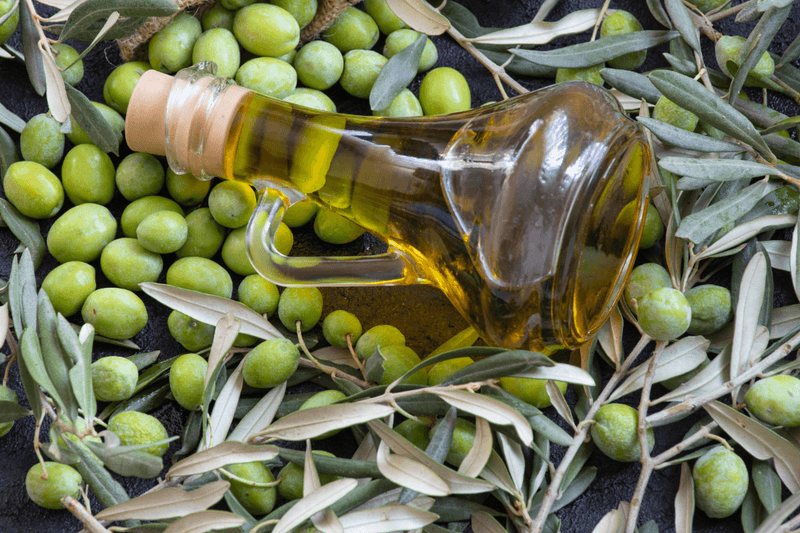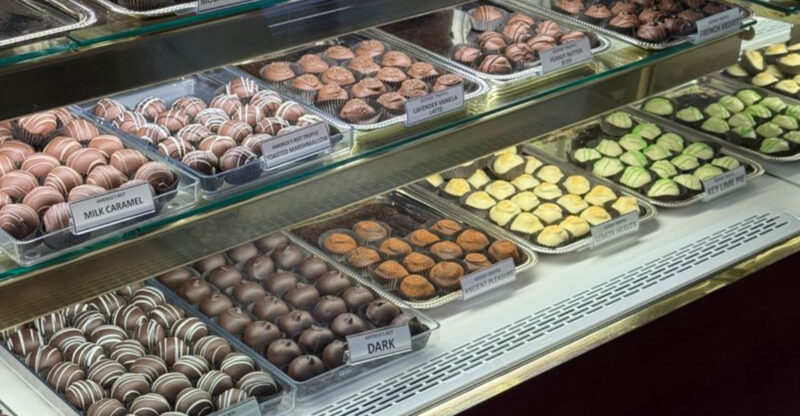10 Favorite Foods You’re Ruining By Keeping In The Fridge, Michigan-Style

Your refrigerator might seem like the safest place for all your groceries, but some foods actually lose their flavor and texture when stored in cold temperatures. Many Michigan households unknowingly damage their favorite ingredients by refrigerating them.
I’m here to show you which foods deserve a spot on your counter instead of inside your fridge.
1. Tomatoes

Cold temperatures destroy the natural flavor compounds that make tomatoes taste amazing. Your fridge turns them mealy and bland, ruining that juicy texture you love.
Room temperature storage keeps them firm and delicious. Michigan summer tomatoes especially deserve better treatment than a cold shelf.
Keep them in a bowl on your counter away from direct sunlight for best results.
2. Potatoes

Refrigerators convert potato starches into sugar, creating an unpleasant sweet taste. That gritty texture you sometimes notice comes from improper cold storage.
Michigan grows incredible potatoes that need cool, dark spaces instead. A pantry or cellar works perfectly for maintaining their quality.
Paper bags help them breathe while keeping light out, preventing green spots from forming.
3. Onions

Moisture from your fridge makes onions soft and encourages mold growth quickly. Nobody wants mushy onions when cooking their favorite Michigan recipes.
Proper air circulation keeps them crisp and ready for months. Store them somewhere dry and cool with good ventilation.
Mesh bags or wire baskets work wonderfully for maintaining freshness without trapping moisture inside.
4. Garlic

Cold air causes garlic to sprout and develop mold faster than you’d expect. The flavor also becomes bitter and less potent when refrigerated.
Michigan cooks know fresh garlic makes everything better, so treat it right. Room temperature storage in a dry spot preserves those pungent oils.
A small ceramic container with ventilation holes keeps bulbs fresh for weeks without problems.
5. Honey

Refrigeration causes honey to crystallize and become impossibly thick to pour. Michigan beekeepers would cringe seeing their product stored this way.
Honey naturally preserves itself at room temperature forever without spoiling. Those crystals make spreading difficult and change the smooth texture.
Keep your jar sealed tight in a cabinet for easy access whenever you need sweetness.
6. Bread

Your fridge actually makes bread go stale faster through a process called retrogradation. Michigan bakery bread deserves better than becoming dry and tough.
Cold temperatures mess with the starch molecules, creating that cardboard-like texture. Room temperature storage in a bread box maintains softness beautifully.
For longer storage, freezing works better than refrigeration for preserving freshness and flavor.
7. Coffee

Coffee beans absorb moisture and odors from your refrigerator like tiny flavor sponges. Michigan coffee lovers know this ruins that perfect morning brew.
Condensation forms when you remove cold coffee, damaging the beans further. An airtight container at room temperature protects the oils and aromatics.
Your pantry provides the ideal dark, dry environment for maintaining rich coffee flavor daily.
8. Hot Sauce

Vinegar and peppers naturally preserve hot sauce without refrigeration needed. Many Michigan households waste fridge space storing bottles unnecessarily.
Cold temperatures can actually dull the spicy flavors you’re craving. Most commercial hot sauces remain stable at room temperature for months.
Check your bottle’s label, but most varieties stay fresh in your pantry perfectly fine.
9. Olive Oil

Cold temperatures cause olive oil to solidify and turn cloudy in appearance. Michigan cooks need their oil pourable and ready for cooking anytime.
Refrigeration also affects the delicate flavor profile you paid good money for. A cool, dark cupboard away from heat sources works best.
Keep your bottle tightly sealed to prevent oxidation and maintain that fresh taste longer.
10. Apples

Michigan apples taste better when stored at room temperature for immediate eating. Refrigeration slows ripening but also diminishes that crisp, sweet flavor.
If you plan to eat them within a week, countertop storage works great. The cold can make the flesh mealy and less enjoyable.
For longer storage, use your crisper drawer, but bring them out before eating for better taste.






